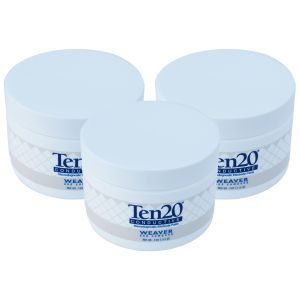We use cookies to make your experience better. To comply with the new e-Privacy directive, we need to ask for your consent to set the cookies. Learn more.
Setting Up For Clinical Success Screens for the Infiniti
- Introduces key techniques used in neurofeedback
- Over 200 training screens
- By Dr. Linda & Dr. Michael Thompson
- For ProComp2, Infinit, FlexComp
Setting Up For Clinical Success is the first in a series of add-on screens for the ProComp Infiniti Neurofeedback System. Pre-built EEG training screens that can be easily installed and used. 3rd Editon of the CD from Michael and Lynda Thompson Phd..
The Setting up for Clinical Success Suite has been designed for professionals who want to work with children and adults with ADD/ADHD, LD, Asperger,s, Anxiety, Depression, as well as athletes, executives or performers for improved performance. In this suite, Dr. Lynda Thompson and Michael Thompson M.D., introduce some of the key techniques being used in neurofeedback using the worlds leading Infiniti biofeedback system.
This neurofeedback software CD includes over 60 new screens for the Infinically relevant screens made by clinicians.
Works with:
- Procomp 2
- Procomp Infiniti 8 Channel
- Flexcomp in Procomp Infiniti mode (dip switch settings changed)
- Give clinicians a range of displays applicable to young children, adolescents and adults
- Give Experts basic screens they can modify to meet very specific requirements for individual clients
- Offer trainers who are beginning a NEUROFEEDBACK practice a sufficient variety of screens to cover the most common training needs of their clients
- Provide useful measurements including microvolts, % time >threshold, and points for sustaining a desired mental state
The Thompson screens have come from treating a wide variety of clients and experience in education, clinical psychology and science. At the ADD Centre and Biofeedback Institute there are clients from 4 to 70 years of age, from top executives and athletes just wanting to optimize their performance to children with ADHD, learning disabilities, Aspergers, Autism, Tourettes, to adults with anxiety, depression, and head injuries.
About The AuthorsLynda Thompson, Ph.D., Psychologist, has done teaching, clinical psychology, school psychology and owned learning centres. She has given invited workshops and lectures on five continents on Neurofeedback and Biofeedback. She became Executive Director of The ADD Centre in Toronto in 1993. Her doctoral dissertation (1979) dealt with hyperactive children treated with methylphenidate. She is co-author with William Sears of The A.D.D. Book: New Understandings, New Approaches to Parenting Your Child.
Michael Thompson, M.D. administrates the Biofeedback Institute and teaches. When formerly practicing medicine he was Associate Professor and head of post-graduate education in Psychiatry, University of Western Ontario, examiner Royal College of Physicians, chairman examinations committee in psychiatry. While Associate Professor, University of Toronto, he was psychiatric consultant to The Hospital for Sick Childrens neurology department. Numerous professional publications include A Residents Guide to Psychiatric Education and The Neurofeedback Book: An Introduction to Basic Concepts in Applied Psychophysiology.
Together the Thompsons have recently written chapters on Stress Management (Paul M. Lehrer, Robert L. Woolfolk and Wesley E. Sime (Eds.) Principles and Practice of Stress Management, 3rd Edition. New York: Guilford Publications) and ADHD and on Aspergers (Budzynski, Thomas, Budzynski, Helen Kogan, Evans, James R., Abarbanel, Andrew, (eds.), Introduction to Quantitative EEG and Neurofeedback: Advanced Theory and Applications (second edition), Academic Press, Elsevier, NY, 365-415 ). They have also contributed a chapter on Autistic Spectrum for an upcoming book by Schwartz and Andrasik.
Suites DisclaimerAll Biofeedback Foundation of Europe(BFE) software available on our website is being designed and created by specialized practitioners for use in clinical and research settings with the support of the BFE. This software will undergo continuous editing and updates, and will inevitably contain bugs, errors, or require fixes. All documentation to accompany the software is provided by the author and the accuracy or claims contained within these materials are not the responsibility of the BFE.
As a supporter of the IREP (International Research and Education) Team, it is important that you understand how highly we value any suggestions you wish to provide on what needs to be changed, clarified, or otherwise improved for the future commercial editions. We want to be sure that you are aware of this and take advantage of the benefits of being an initial purchaser of the limited edition software. We welcome any feedback you might have and encourage your involvement in the team.
Suite Software-Display Screens
The self-installing CD includes over 40 specialized screens for clinical assessment, stress profiling and to motivate and train clients. An 84-page guide gives practitioners a basic start so that they can begin using the BioGraph Infiniti program with a range of clients.
As a NEUROFEEDBACK /BIOFEEDBACK generalist clinician you will most often be seeing:
- Children or Adults: ADHD (+ Aspergers or + Seizure Disorder); AND, ADD (+ LD)
- Adolescents & Adults: Ruminating, tense, anxious, + secondary inattention; AND, clients who wish to Optimize Performance in academics, business and sports.
These clients all require cognitive strategies to assure that training generalizes to their every-day environment. The MT channel sets have taken into account the goals for training and matched them to the most common bandwidths used for NEUROFEEDBACK and BIOFEEDBACK modalities that are used for feedback (training).





